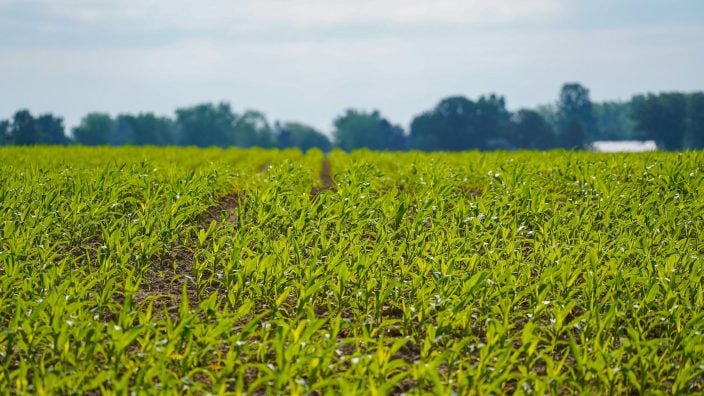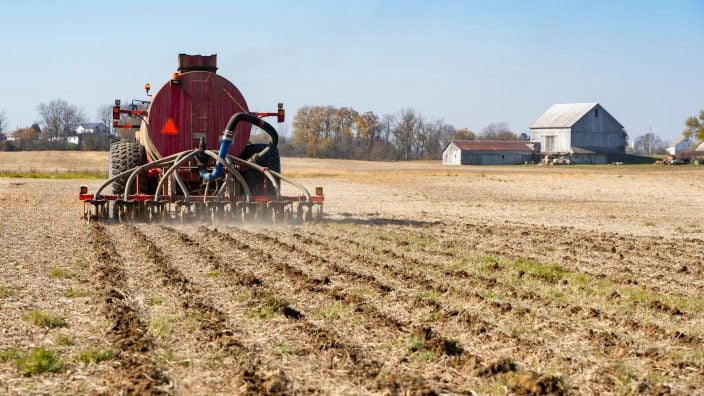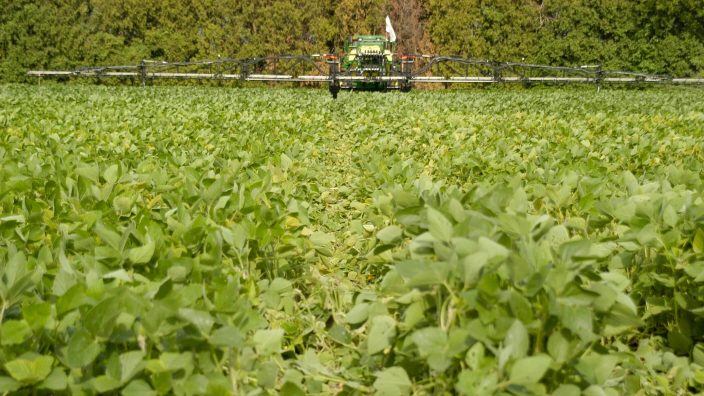Legal with Leah: The questions around data centers
Leah Curtis joins this Legal with Leah to talk about what data centers mean for local communities and how to stay engaged in the development process
Read MoreUS EPA announced a new policy which requires a more robust review of agri-chemicals in relation to the Endangered Species Act, impacting farmers who had planned on using some Enlist products this year. Why was this policy created? Get answers from Ohio Farm Bureau Policy Counsel Leah Curtis.
Listen to Legal with Leah, a podcast featuring Ohio Farm Bureau’s Policy Counsel Leah Curtis discussing topics impacting farmers and landowners.
Ty Higgins [00:00:00] Well, U.S. EPA announced a new policy that will require a more robust review of agri-chemicals in relation to the Endangered Species Act. Leah Curtis joins us for Legal with Leah. She is policy counsel with Ohio Farm Bureau and Leah, first question is why was this policy created?
Leah Curtis [00:00:17] EPA’s justification in this new policy is that they are sued a lot, for a lot of reasons. But one of those big reasons is the Endangered Species Act. The Endangered Species Act is a very robust law. It requires a lot of different reviews for a lot of different actions, and one of those is in regards to these agri-chemical reviews. So EPA is saying we keep getting sued. We have to go through this litigation to argue that we are upholding the Endangered Species Act. This will give us a more robust argument that yes, we are upholding the Endangered Species Act. Hopefully this would also limit litigation, which limits costs, et cetera.
Ty Higgins [00:00:56] So these reviews for new active ingredients could result in changes as their labels come up for renewal. What product do these changes affect in particular?
Leah Curtis [00:01:04] So right now, this is news, because this came out on about Jan. 11 from EPA, and at the same time they released a new label for Enlist One and Enlist Duo, which are two chemicals that are used on corn, soybeans and cotton. Those labels were going to expire on Jan. 11, so they had their renewal done and that renewal was issued on Jan. 12, but it has a number of new restrictions on the use of those products.
Ty Higgins [00:01:30] Some of those restrictions, actual bans, keeping Ohio farmers from using these products. Who is affected?
Leah Curtis [00:01:37] Yes. So importantly about this label, there are some changes about spray nozzles and stuff. But more importantly, is this ban on use in a number of counties across the country, including 12 counties in Ohio. So those would be Athens, Butler, Fairfield, Guernsey, Hamilton, Hocking, Morgan, Muskingum, Noble, Perry, Vinton and Washington.
Ty Higgins [00:01:57] Corteva is the company that makes Enlist products the one we’re talking about now that’s been impacted by this EPA policy change. What are they saying about this?
Leah Curtis [00:02:07] So Corteva says they realize this is going to be a problem for a lot of people, they’re working with EPA to try to amend the label, but the label did have to be renewed or nobody would have been able to use the product. So they’re working to try to amend the label. Of course, they’re not going to make any assurances to anyone that this is going to change, though, so there’s no guarantee. And you know, this is a problematic time for farmers to have this come out because people have already made their planting decisions based on, I can use these chemicals with these seeds. Not to mention, there’s limitations on dicamba, which would be another option that you might have. And then just availability generally and price increases of all these agri-chemicals as well.
Ty Higgins [00:02:49] So we talked about what Corteva says. What actions are being done for Farm Bureau here in Ohio and for the American Farm Bureau on this issue.
Leah Curtis [00:02:57] So again, these were just announced. So we are working on this particularly at the national level. We are having discussions directly with EPA about how this is impacting everyone. Are there ways to mitigate this impact or limit, change how this is happening? And then we’re also coordinating with all of our colleagues. Remember, there are Farm Bureaus in every state and of course, we are talking with all of our colleagues in our neighboring states that are also affected by this decision to see how we can kind of work together to deal with this issue as well.
Ty Higgins [00:03:26] Information is ever changing. Updates are coming in pretty much by the day at this point. Of course, we’ll be sharing anything we learn with you through our publications and communications channels.


Leah Curtis joins this Legal with Leah to talk about what data centers mean for local communities and how to stay engaged in the development process
Read More

Ohio Farm Bureau advocated for a change in the law to allow family members and employees to handle pesticides while under the supervision of a licensed applicator. The rules around HB 10 are being finalized.
Read More

Four property tax reform bills were signed into Ohio law at the end of 2025. Ohio Farm Bureau Associate General Counsel Leah Curtis breaks down the bills and what the changes mean for Ohioans.
Read More

Learn what the requirements are to legally fly a drone in Ohio as well as steps the Ohio Legislature has taken in terms of security concerns.
Read More

In 2025, about 21 counties are going through a reappraisal or update, and because Ohioans pay taxes one year behind, they will see new property tax bills in January 2026.
Read More

Any unlicensed handlers who use restricted use pesticides will need to have additional training. Farm Bureau will be working on legislation to give employers a choice on how to provide training.
Read More

Current Agricultural Use Value is often discussed as a farmland preservation tool, but there are some other tools in the law that landowners can consider.
Read More

Update: As of Feb. 27, 2025, the Financial Crimes Enforcement Network announced no fines, penalties or enforcement action will be taken against companies based on failure to file or update BOI by March 21.
Read More

Update: As of Feb. 27, 2025, the Financial Crimes Enforcement Network announced they would not issue any fines or penalties or take enforcement action against companies based on failure to file or update beneficial ownership information reports by the March 21, 2025, deadline.
Read More

Update: As of Feb. 27, 2025, the Financial Crimes Enforcement Network announced they would not issue any fines or penalties or take enforcement action against companies based on failure to file or update beneficial ownership information reports by the March 21, 2025, deadline.
Read More